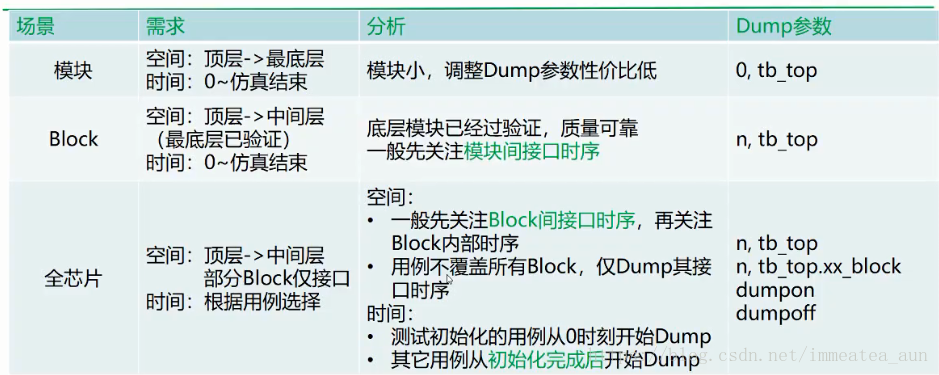catalogue
2. Check fsdb waveform and track RTL code debug
1, Introduction to Verdi
Verdi is a powerful debugging tool, which can be debugged with different simulation software. Many enterprises often use VCS+Verdi to simulate and check the code. Verdi is mainly used by IC Verification Engineer (Debug) and IC Design Engineer (Review).
2, Verdi usage target
There are three main steps to use Vverdi: generate fsdb waveform - view fsdb waveform - Track RTL code debug.
1. Generate fsdb waveform
Three variables
- VERDI_HOME/NOVAS_HOME: the emulator defaults and prepares for setting PATH
- PATH: let the system (Linux) find verdi
- LD_LIBRARY_PATH: enable the system (Linux) to find the library files required by Verdi. So (static library),. A (dynamic library),. Tab (table file)
Three commands
- Echo (with sed): query (print) environment variables. The pipeline command | is equivalent to giving the results on the left side of the pipeline to the commands on the right side for execution
echo $PATH | sed ‘s/\:/\n/g’ , Global replacement, replacing colon with newline character
echo $LD_LIBRARY_PATH | sed 's/\:/\n/g'
- Which: query whether the current software is set. If the setting is successful, the software path will be displayed. Use which verdi
- uname -i: query the current system information. For example, the hardware platform 64bit is x86_ i386 for 64 / amd64,32bit platform
Two methods
- Use the Verilog system function and add the following code to the test code
initial begin
$fsdbDumpfile("top_tb.fsdb");
$fsdbDumpvars(0,"tob_tb");
end
- Use UCLI and TCL interfaces (VCS uses TCL script)
global env
fsdbDumpfile "$env(demo_fifo).fsdb"
fsdbDumpvars 0 "top_tb"
run
Comparison of advantages and disadvantages of two main methods of Dump waveform
| Based on system function | Based on ucli/tcl interface | |
| excellent | 1. New employees are familiar with Verilog code and accept it quickly | 1. There is no need to recompile the simulation top layer; 2. Using high-level language interface, it is easy to complete complex processing, such as transferring variables, such as using regular expressions; 3. Interactive interface, flexible control, and dump information can be modified in the simulation process, such as dumpon/dumpoff |
| lack | 1. The system needs to be recompiled, which wastes time (when valueplusargs is not used); 2.Verilog is a low-level language, which is difficult for text processing and does not support regular expressions | 1. Most new employees are not familiar with Tcl and accept it slowly |
Three EDA manufacturers
- Synopsys: VCS + Verdi
- Cadence : irun + Verdi
- Mentor : Questa + Verdi
Makefile script of VCS: those related to Verdi are annotation contents, using ucli interface
com:
vcs -full64 \
-sverilog \
-debug_pp \ # Enable UCLI command
-LDFLAGS \ # The linker that passes parameters to VCS is used in conjunction with the following three lines
-rdynamic \ # Indicates the dynamic library to load, such as libsscore_vcs201209.so
-P ${VERDI_HOME}/share/PLI/VCS/${PLATFORM}/novas.tab \ # Load table file
${VERDI_HOME}/share/PLI/VCS/${PLANTFORM}/pli.a \ # Load static library
-f ../${demo_name}/tb_top.f \
+vcs+lic+wait \
-l compile.log
sim:
./simv \
-ucli -i ../scripts/dump_fsdb_vcs.tcl \ # ucli's input file (- i) is a tcl script
+fsdb+autoflush \ # The command line parameter autoflush simulates and dumps the waveform at the same time. Without this parameter, the waveform will not be dumped. You need to type fsdbDumpflush after ucli command run 100ns to dump the waveform
-l sim.log
Where dump_fsdb_vcs.tcl (ucli script is Tcl language)
global env # tcl script refers to environment variables, which are defined in Makefile through export
fsdbDumpfile "$env(demo_name).fsdb" # Set the waveform file name, which is controlled by the environment variable env(demo_name)control # demo_name uses export demo in makefile_ name=demo_ fifo
fsdbDumpvars 0 "tb_top" # Set the top level and level of the waveform, indicating that TB will be used_ Top as the top level, Dump all levels
run # After setting the dump information and starting the simulation (at this time, the simulator is controlled by ucli), you can run 100ns and stop when simulating 100ns
You can also use interactive simulation: note content can be typed during the simulation
global env fsdbDumpfile "$env(demo_name).fsdb" fsdbDumpvars 0 "top_tb" run 200ns #fsdbDumpoff #run 100ns #fsdbDumpon #run
questa script:
compile:
vlib work
vmap work work
vlog \
-64 \
-sv \
+acc \ # +acc make loading PLI valid
-f ../${demo_name}/tb_top.f \
-l com.log
run:
vsim \
-64 \
-batch \
-novopt \
-pli ${VERDI_HOME}/share/PLI/MODELSIM/${PLATFORM}/novas_fli.so \ # Load shared objects
work.tb_top \
-do ../scripts/dump_fsdb_questa.tcl \
+fsdb_autoflush \
-l sim.log
dump_fsdb_questa.tcl
gloal env fsdbDumpfile "$env(demo_name).fsdb" fsdbDumpvars 0 "tb_top" run -all quit -sim
Requirements for dump waveforms in different scenarios
Write a picture description here
2. Check fsdb waveform and track RTL code debug
For details on Verdi, see Verdi quick use tips_ yh13572438258 blog - CSDN blog
Reference link: https://blog.csdn.net/immeatea_aun/article/details/80961258